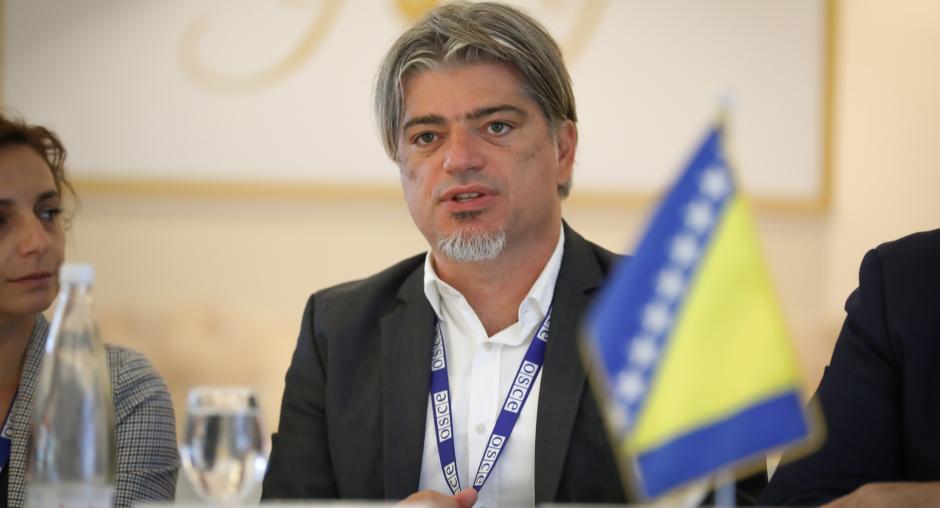Promotion of the Guidelines on Communication with Persons with Disabilities held in Široki Brijeg

ŠIROKI BRIJEG, 4 September 2023 – The OSCE Mission to Bosnia and Herzegovina and the Institution of Human Rights Ombudsman of Bosnia and Herzegovina organized the promotion of the Guidelines for Improvement of Everyday Communication with Persons with Disabilities in Široki Brijeg today.
These Guidelines, published in 2022 by the Institution of Human Rights Ombudsman of Bosnia and Herzegovina (the Ombudsman Institution), aim to improve everyday communication with persons with disabilities (PwDs), in public institutions and bodies, companies, legal entities and individuals who contribute to social integration of PwDs.
Representatives of the Ombudsman Institution, West Herzegovina Canton (WHC) civil society organizations gathering PwDs and promoting their rights, as well as executive, legislative and judicial authorities in WHC had the opportunity to exchange views and agree upon activities ahead.
Ioannis Piliouris, Head of the OSCE Field Office in Mostar, commended the continuous efforts and partnership with the Mission of all gathered in pursuing issues that PwDs face in everyday life and in advocating for improvement of their access to rights. “This includes issues pertaining to the removal of architectural barriers, inclusion of the civil sector in the process of creation of relevant legislation, successful advocacy by the Mission regarding the adaptation of official webpages for the use of persons with visual impairment, exchange of good practices with the organization Los Rosales Mostar towards the opening of Kutak Srece café in Široki Brijeg, now employing 10 young persons with disabilities.”
Communication is a human rights issue,encompassing the right to receive and impart information. As such, freedom of expression is a key prerequisite to enjoy other human rights.
Nives Jukić, BiH Human Rights Ombudsperson, explained that these guidelines are their contribution to improve the position of persons with disabilities, as they are a guide for all public bodies and companies on how to communicate with persons with disabilities. “Unfortunately, in Bosnia and Herzegovina, persons with disabilities face numerous barriers in their everyday life, from architectural to communication, due to which they are exposed to various forms of discrimination, and they should have equal rights and opportunities for full participation in all areas of life“.
Elaborating on how different categories and types of disabilities exist, the Chairwoman of WHC Association of PwDs, Zora Mikulić, explained the need for initiating improvements in the future. “We expect from today’s meeting new ideas and guidelines, for instance, the establishment of a committee for employment of PwDs and the introduction of sign language at Cantonal level,” she concluded.
It is important to promote awareness about relevant best practices in combating discrimination, and to call for the development of adequate policies, programmes and strategies at all levels.
The Mission will continue to support efforts of all actors and organizations that advocate for the enjoyment of rights of PwDs.
